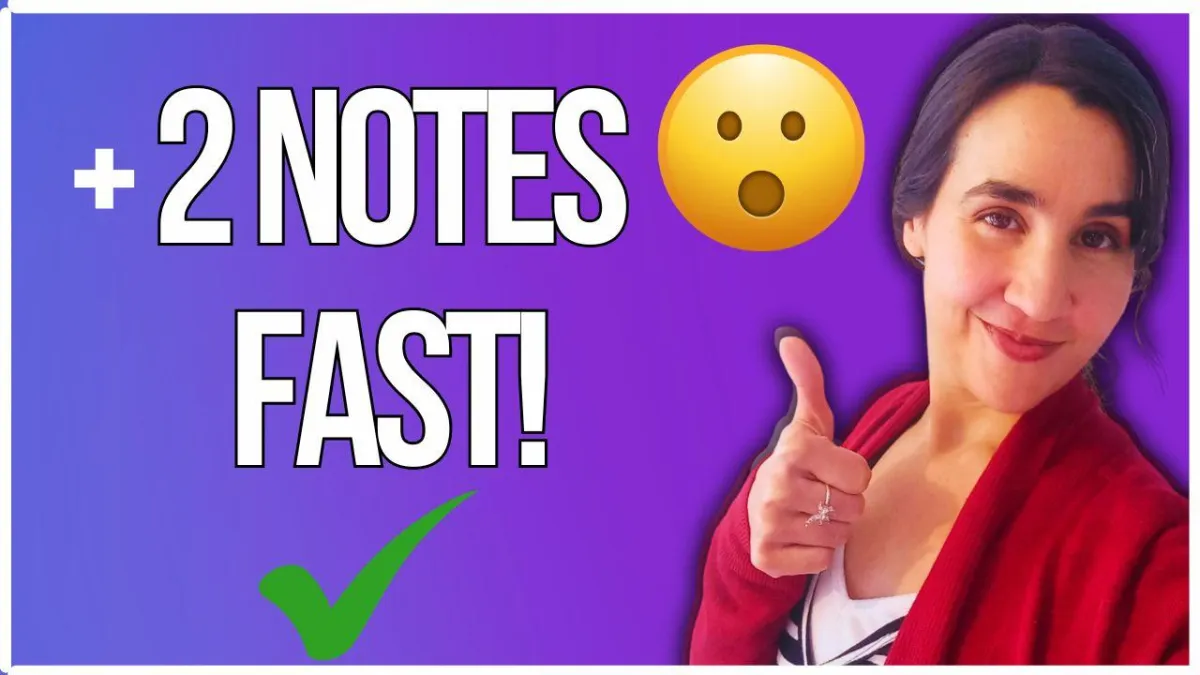See Our Latest Blogs
Explore our blogs and learn about singing❤️

How I Expanded My Lower Vocal Range in Just One Week (Without Straining My Voice)
How I Expanded My Lower Vocal Range in Just One Week (Without Straining My Voice)
Do you want to expand your lower vocal register but don’t want to spend months training for it?
You’re in the right place — because I’m going to share exactly how I increased my lower range by two to three semitones in just one week.
This is a simple, voice-safe technique that worked wonders for me, and it might do the same for you.
Why I Needed to Expand My Range
A while back, I was preparing for a show where I had to sing “Grace” by Jeff Buckley. Even though I slightly modified the key, I still had to hit a D#3 — which is quite low for a soprano like me.
I practiced for days, but those low notes just wouldn’t settle in. I couldn’t get the depth or strength I needed.
Then, something unexpected happened that changed everything.
The Accidental Discovery
While training for the same show, I was also learning to sing with distortion. My voice is very sensitive, and after a few sessions, it became sore. I didn’t want to stop training completely, but I needed to protect my voice.
So I made a small adjustment: I decided to sing everything using only vowels — no words, no consonants — for a whole week.
Why Singing on Vowels Works
If you’ve studied voice before, you know vowels are the foundation of singing.
They keep your airflow continuous, while consonants interrupt it.
By removing consonants temporarily, I allowed my voice to keep training — but in a gentler, more efficient way. My vocal muscles could stay active without strain.
For example, instead of singing the phrase:
“There’s a moon asking to stay”
I would sing it like this:
“ɛə ə uː æɪ ʊ ə eɪ”
(It sounds silly, but it works!)
The Results After One Week
After a full week of vowel-only singing, I reintroduced the lyrics.
To my surprise, my lower notes were noticeably stronger, fuller, and easier to reach.
Even better — I had unlocked about two to three semitones below my previous range.
Those new low notes have stayed with me ever since!
It made perfect sense: by training in the most ideal, interference-free context, my voice system learned to work more efficiently. Once I added words back in, the coordination held up beautifully.
The Technique: Two Key Steps
If you want to try this method, there are two essential steps to make it work safely and effectively.
1. Maintain a Steady Airflow
When you sing only on vowels, your airflow must stay smooth and continuous — not choppy.
Avoid doing something like this:
“ooh, ooh, ooh, ooh” (with breaks)
Instead, keep the tone connected and flowing:
“ooooooo…”
That consistent airflow is what trains your voice muscles properly.
2. Refine Your Articulation
In functional vocal training, we transform the speaking instrument into a singing instrument.
This means your mouth shape should stay relatively steady, and you’ll use only the corners of your lips and your tongue to change vowels.
For “oo” and related vowels: project the lips forward.
For “ee” and similar vowels: lift and move the tongue forward, with the tip gently touching the gum line.
To practice keeping the right space, you can even hold two fingers vertically between your teeth as a guide.
This helps maintain an open, resonant vocal tract — essential for a free, rich sound.
Final Thoughts
Expanding your lower register doesn’t have to take months of frustration.
With the right approach — gentle, focused, and vowel-based — you can unlock new notes, build strength, and sing more confidently.
Some feedback from past students!
Frankie Lam

Highly recommended; Jorgelina, the primary singing instructor knows her stuff and really helped guide me through finding my mixed voice.
She has huge amounts of knowledge on the science and theory behind singing and approaches lessons in a very structured but still personalised manner. Very happy with my decision to take lessons here.
Jess Reeve - Taylor

I really struggled with the high notes before coming to Jorgelina! She's coached me through so many techniques and although there is so much to learn I feel like I've seen lots of progress already. My confidence has grown massively since joining the group classes too and she encourages performing at every opportunity. I love that Jorgelina takes a holistic approach to singing and understands that it's not just about sounding great, the voice also has strong connections to the body and mind. Thanks Jorgelina!
Rupert Wilson

Bruh. Jorgelina is an awesome singing teacher! Super knowledgable, very engaged and 100% passionate. She's helped me a lot. Her methods and techniques feel organic and natural. She moves at your pace and is super supportive about you achieving your singing goals. Would recommend her to anyone with a vagus nerve (thats everyone btw!).
Get In Touch
Learn to sing with us!
© 2025 The Functional Singer - All Rights Reserved


Facebook
Instagram
Youtube